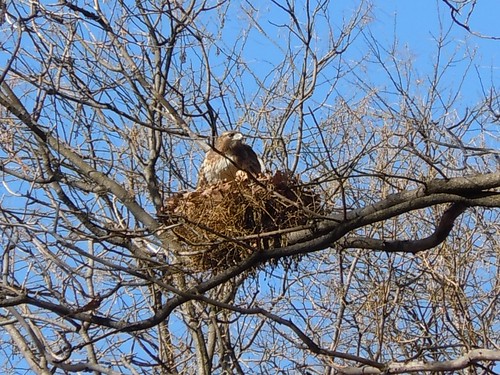 Sanna Chu Dennis Edge.
Sanna Chu Dennis Edge. Dennis Edge Blackburnian warbler
Dennis Edge Blackburnian warblerIt’s bird migration season, meaning you can see more than just the usual pigeons and sparrows in Tompkins Square Park. Dennis Edge, a local birder, has photographed 92 species there, and he’ll talk about it at the 6th & B community garden later this month.
The retired graphic designer often roams the park with a digital SLR camera and telephoto lens. Just yesterday morning he spied an American redstart warbler, a migratory bird with orange patches, in the vines near the park’s offices.
 Dennis Edge American Kestrel
Dennis Edge American KestrelMr. Edge, 74, grew up in North Carolina and moved to the East Village in 1970. He first became interested in birds over 10 years ago when he photographed an injured red-tailed hawk on East Ninth Street. He contacted the National Audubon Society and was put in touch with a bird rehabilitator, who told him to throw a blanket over the bird, put it in a box and bring it over. “Easier said then done,” he said. Read more…
The Lo-Down spotted a hawk devouring a pigeon in Seward Park yesterday — and so did much of the Lower East Side, apparently. The bird of prey dined unperturbed as a gaggle of excited onlookers took pictures of nature in all its brutality. When The Local spoke to the executive director of New York City Audubon last week regarding the hawks in Tompkins Square Park, he said that it was likely the newborns were venturing far beyond the green space where they were raised. Might this hawk in Seward Park once have nested in Tompkins?
 Carol Vinzant A red-tailed hawk in its nest in Tompkins Square Park earlier this year. Officials said that they stopped placing rat poison in the park to protect birds of prey, which feed on the rodents.
Carol Vinzant A red-tailed hawk in its nest in Tompkins Square Park earlier this year. Officials said that they stopped placing rat poison in the park to protect birds of prey, which feed on the rodents.Lately the hoards of rats scurrying all over Tompkins Square Park have disgusted local parents taking their children to the playground. Now, an ironic — and unwitting — culprit has emerged as the reason for the boom in rats: red-tailed hawks.
The Parks Department told The Local Monday that it stopped placing rat poison in the East Village’s green oasis in April because it could pose a danger to the feathered carnivores, which feed on the rodents.
“We are not placing rat poison in Tompkins Square because of the hawk,” said Philip Abramson, a spokesman for the Parks Department. “Instead we have replaced the garbage baskets with garbage drums, preventing rats from accessing its insides.”
The red-tailed hawk was first noticed this month on EV Grieve keeping vigil over the park, and occasionally feasting on a rat. Around the same time, a new parent group, Tompkins Square Park & Playgrounds Parents’ Association, sounded the alarm on the rats in The Villager, saying the critters were even burrowing in the sandbox.
As it turns out, the two occurrences are related. A poisoned rat can be a fatal feast for a hawk, especially a juvenile one.
Read more…
 Adrian Fussell
Adrian Fussell Good morning, East Village.
Rats. Lots of rats. The playground in Tompkins Square Park has turned into a haven for these unwanted critters, The Villager reports. In response to this growing problem, a new group, the Tompkins Square Park & Playgrounds Parents’ Association, made up of 175 neighbors recently banded together to confront this issue. As did the red-tailed hawk, as seen in photos posted earlier this week by EV Grieve.
In less threatening news — depending on your outlook — the World Naked Bike Ride takes off this weekend. The Local’s Laura E. Lee previewed the ride, which aims to bring attention the vulnerabilities and dangers associated with cycling in the city.
The ride is Sunday, when temperatures are expected to drop into the 80’s. Today and Saturday, however, the peak of the heat wave hits with temperatures in excess of 100 degrees. As we have been reporting the last two days, the National Weather Service has issued an excessive heat warning, and cooling stations will be open today and Saturday. Find a cooling station here or by calling 311.
With the heat wave upon us, Con Ed is warning of potential scattered power outages, Gothamist reports. The power company recommends reducing energy consumption as much as possible, such as turning off air conditioners when away from home.









